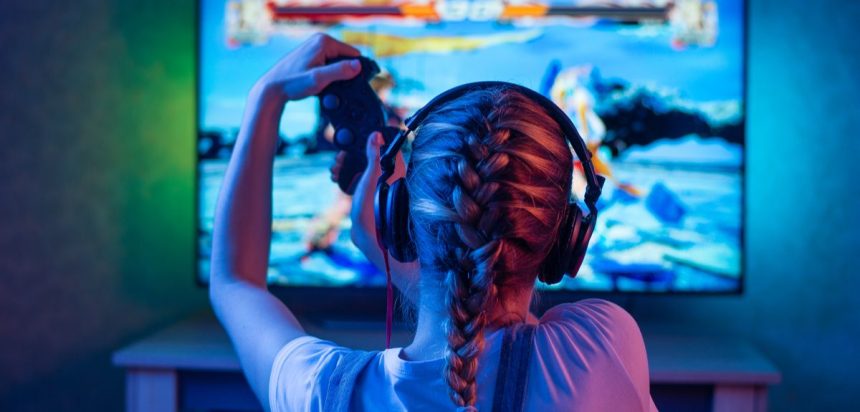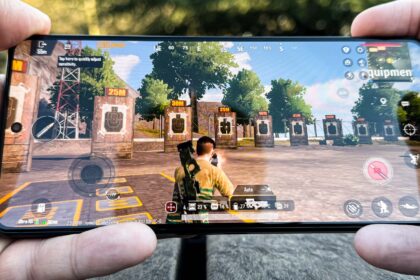Recently, the debate surrounding the effects of video gaming on mental and emotional wellbeing has heated up significantly. Many have raised fears over potential adverse side effects resulting from playing these video games, including addiction, increased aggression, decreased socialization, and reduced interactions. But now, a groundbreaking groundbreaking groundbreaking study challenges this assumption by suggesting that playing these video games may not significantly affect wellness.
Methodology and Findings Led by researchers from esteemed institutions, this comprehensive investigation explored the relationship between video game engagement and overall wellbeing. Researchers employed diverse participants based on age, gender, and gaming habits, providing ample data.
Contrary to popular opinion, this study revealed unexpected findings. Contrary to popular perceptions, video game playing did not lead to any decline in the mental or emotional well-being of its participants across different age groups and gaming intensities – regardless of gaming habits, they displayed similar levels of well-being irrespective of gaming preferences.
Studies on Video Games and Cognitive Benefits
This research revealed one unexpected finding: gaming games have cognitive advantages over time. Participants reported increased problem-solving skills, improved hand-eye coordination, and greater spatial awareness from playing. Such findings go against the popular opinion that video games harm cognitive functions.
Cognitive Benefits in Gaming Explored
Problem-Solving Skills:
Gamers often immerse themselves in complex scenarios that require quick thinking and strategic decision-making, creating mental stimulation that fosters robust problem-solving abilities. This constant mental stimulation may contribute to their development over time.
Hand-Eye Coordination:
Video games demand precise coordination between visual and motor abilities to effectively navigate virtual worlds and develop one’s Hand-Eye Coordination and fine motor abilities. Players can enhance these vital lifelong abilities when engaging with video games!
Spatial Awareness:
Many video games involve traversing three-dimensional spaces, developing our spatial awareness while developing navigation and orientation skills that translate directly into real-life situations.
While this study challenges the common negative portrayals of video gaming, it emphasizes the significance of moderation. Excessive gaming – like any behavior – may lead to negative repercussions; the key lies in finding a balance that allows individuals to enjoy gaming while remaining involved with other aspects of life.
Finding the Ideal Blend Time Management:
Establishing clear limits for gaming time ensures it does not interfere with other essential activities like work, socialization, and exercise.
Diverse Activities:
Engaging outside gaming, including screen time, is crucial for wellbeing. Balancing screen time with outdoor pursuits, social gatherings, and hobbies contributes to a balanced life.
Monitor Emotional Wellbeing:
Individuals should regularly assess their emotional wellbeing and seek assistance if any negative repercussions emerge from video gaming use. Awareness and self-reflection are integral to maintaining a healthy relationship with video games nova88 login.
Dispelling Stereotypes
This study challenges common stereotypes associated with gamers. Although often depicted as socially isolated and inactive, gamers in this research displayed various social behaviors. Many participants reported forming friendships within gaming communities or participating in social events related to their favorite game(s).
Social Connections in Gaming Online Communities: Multiplayer games often create online communities where players can collaborate on games together – creating an environment of inclusion that has been proven to promote emotional wellbeing and contribute to emotional health in players.
Real-World Events:
Gaming conventions and tournaments bring gamers together in person for face-to-face interactions and friendship formation.
Team Dynamics:
Cooperative gaming requires effective communication and teamwork among team players, leading to the cultivation of social skills and camaraderie among peers.
As discussions around video gaming and wellbeing persist, it is increasingly necessary for them to be grounded on accurate and up-to-date data. This study dispels preconceptions while opening up avenues for dialogue on both the potential benefits and drawbacks of gaming.
Informing Decision-Making Parental Guidance:
Parents are advised to remain apprised of what games their children are playing and engage in open dialogue about responsible gaming habits.
Educational Institutions:
Schools may integrate game-based learning strategies that capitalize on the cognitive advantages identified in this research to promote more positive attitudes about gaming in academic environments.
Public Awareness Campaigns:
Raising public awareness about responsible gaming and its potential benefits could create a more balanced perspective of their place within society.
Conclusion
Overall, this research on video games’ purported adverse effects on wellbeing and wellbeing wellbeing sheds new light on the complex relationship between gaming and mental health. Moderation was highlighted as a crucial element, showing that video gaming may not cause as many harmful side effects when enjoyed responsibly compared with what may otherwise have been thought. As this discussion progresses, it is vital that both positive and negative contributions made through games can be considered with open minds – especially given their potential contribution towards cognitive development or social bonds.












